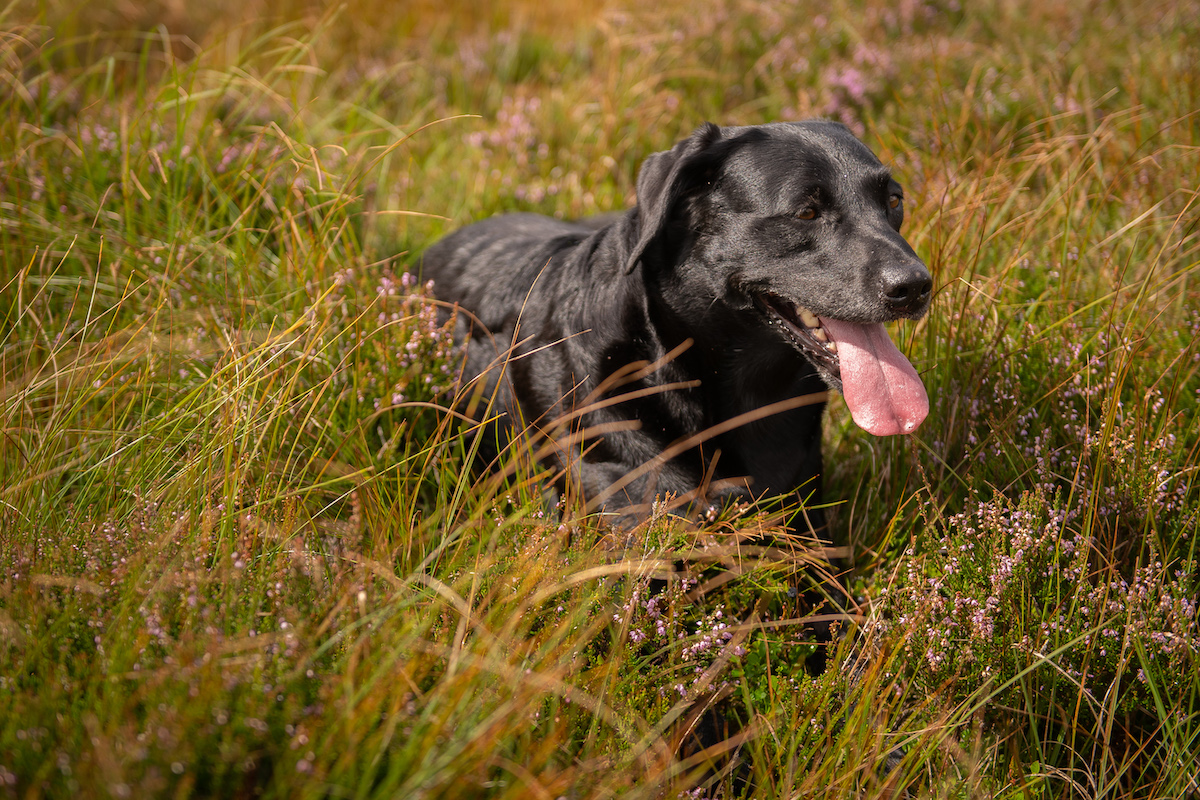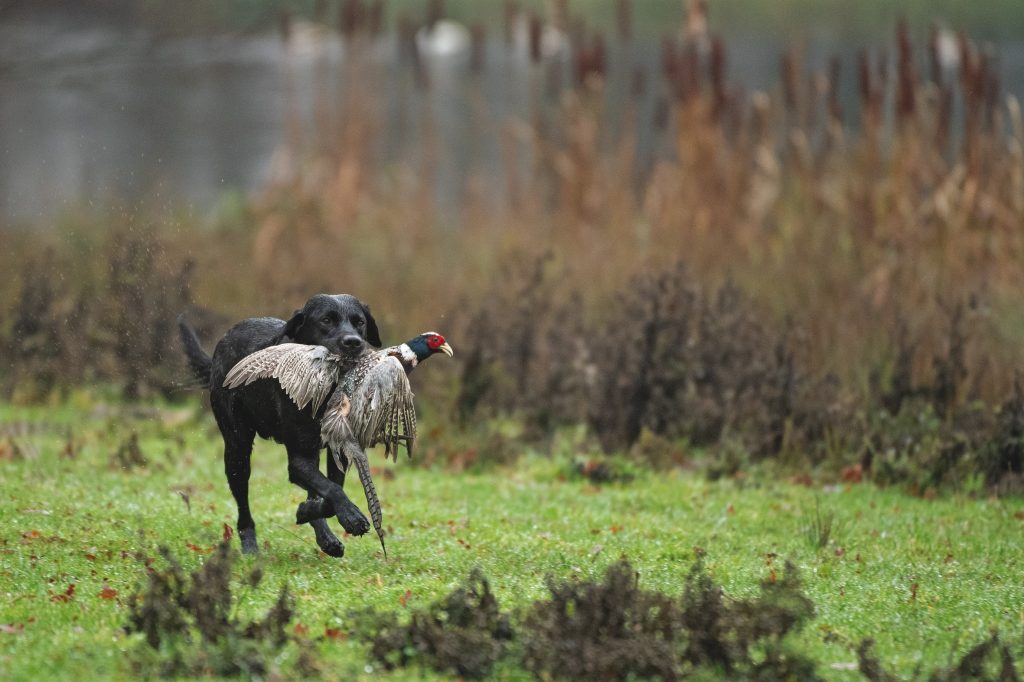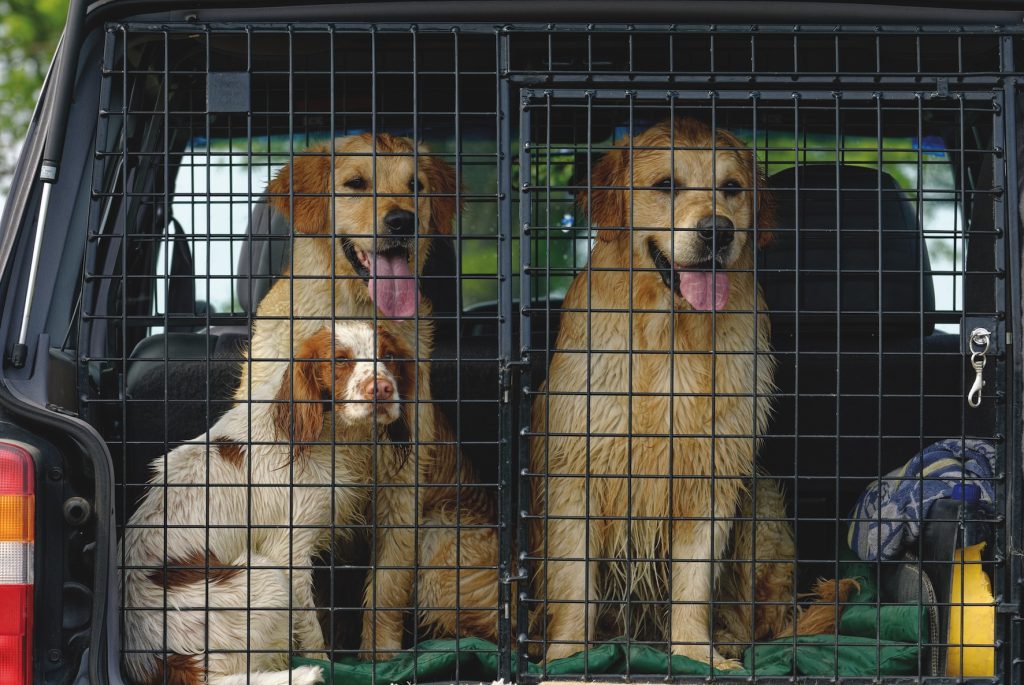The countdown is on for The British Shooting Show – book tickets online today and save on gate price!
Can you cure bad breath in dogs? Here’s how to improve matters
 After a considerable hike uphill and across the moor - Scoop pauses in the heat of the day and gathers her breath
After a considerable hike uphill and across the moor - Scoop pauses in the heat of the day and gathers her breath
Bad breath in dogs
Q: Can you advise on the cause of my dog’s bad breath? I have tried brushing his teeth but he doesn’t like it. I have also tried dental chews and he otherwise has plenty of items to chew on. Have you any other suggestions?
A: Bad breath in dogs, which is technically termed halitosis, is one of the most common dental problems faced by dog owners.
Bad breath seems to be more common in smaller dogs
Causes of canine halitosis
Bad breath in dogs can be a result of periodontal (gum) disease, tooth decay, the accumulation of food and plaque and the consequential build-up of odour-producing bacteria in the mouth. (Read tips on keeping your dog’s teeth free from tartar.)
Take a good look in your dog’s mouth. Look for any sign of dental or gum disease. Many dogs, particularly small ones, are prone to plaque and tartar build-up on their teeth, in which case they will need treatment by your vet. Bad breath can also be caused by digestive system problems. It might indicate that something may be wrong with the liver — unusually foul odour accompanying vomiting, lack of appetite and yellow-tinged eyes or gums — or kidney problems, when the breath often smells like urine.
Unusually sweet-smelling breath could be an indication of diabetes, particularly if the dog has been drinking and urinating more frequently than usual.
If you are unable to see exactly what is causing the bad breath, do visit a vet. They can diagnose the cause and advise on treatment. Prevention is always better than cure and a dental check-up as part of an annual visit to the vet can help prevent the problem.
Bad breath in dogs – what to remember
- It can be a sign of dental disease
- It can be a build-up of tarter/plaque around the top of the teeth
- A clean and polish by the dentist could resolve the smell issue
- Healthy gums should be an even, pink colour
- Infected guns will be reddish where the teeth meet the gums
- Dental chews will help
- Make a monthly inspection of your dog’s teeth
Shopping list for bad breath in dogs
[deal-block url=”https://www.amazon.co.uk/Beaphar-Toothbrush-Toothpaste-Kit-100g/dp/B005VPNGVE” image_url=”https://keyassets.timeincuk.net/inspirewp/live/wp-content/uploads/sites/6/2018/01/Screenshot-2023-01-16-at-15.51.20-1-135×100.png” image_id=”139431″ cta_text=”Buy now “]Toothbrush & Toothpaste Dental Care Kit
For dogs. Includes a Double-Ended Toothbrush & Liver-Flavoured Enzymatic Toothpaste, 100g Tube
[/deal-block]
[deal-block url=”https://www.amazon.co.uk/dp/B003EG8QC6″ image_url=”https://keyassets.timeincuk.net/inspirewp/live/wp-content/uploads/sites/6/2018/01/Screenshot-2023-01-16-at-15.56.15-135×100.png” image_id=”139433″ cta_text=”Buy now “]Finger toothbrush
Ideal for sensitive dogs. Fits comfortably over the end of your finger allowing closer and more accurate teeth cleaning
[/deal-block]
[deal-block url=”https://www.amazon.co.uk/dp/B095PBHFQP” image_url=”https://keyassets.timeincuk.net/inspirewp/live/wp-content/uploads/sites/6/2018/01/Screenshot-2023-01-16-at-15.59.19-135×100.png” image_id=”139434″ cta_text=”buy now “]MediPaws® Plaque Off Remover Dogs
Just add to dog food
[/deal-block]
Related Articles
Get the latest news delivered direct to your door
Subscribe to Shooting Times & Country
Discover the ultimate companion for field sports enthusiasts with Shooting Times & Country Magazine, the UK’s leading weekly publication that has been at the forefront of shooting culture since 1882. Subscribers gain access to expert tips, comprehensive gear reviews, seasonal advice and a vibrant community of like-minded shooters.
Save on shop price when you subscribe with weekly issues featuring in-depth articles on gundog training, exclusive member offers and access to the digital back issue library. A Shooting Times & Country subscription is more than a magazine, don’t just read about the countryside; immerse yourself in its most authoritative and engaging publication.







